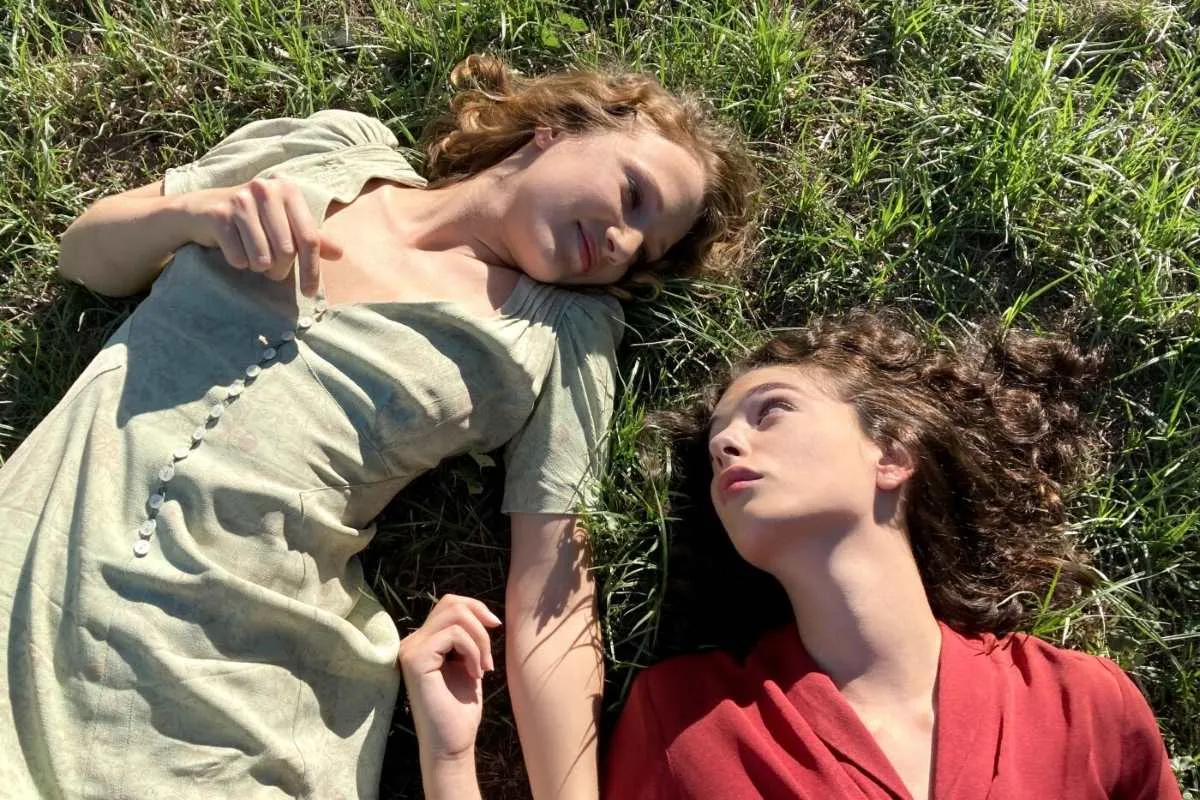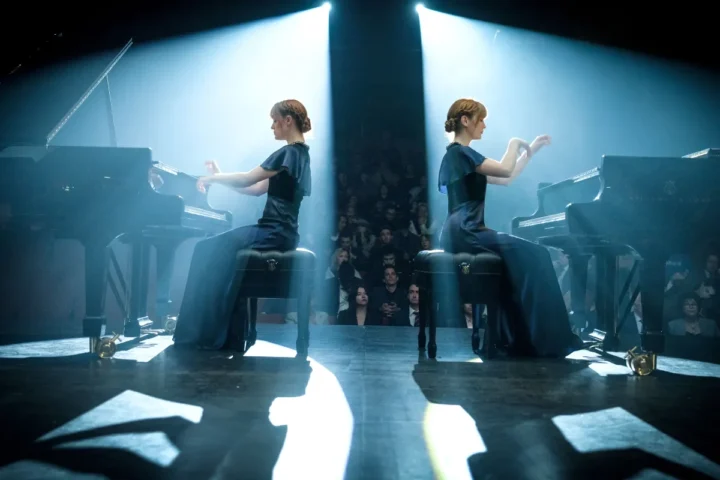Director Laura Luchetti’s erotic yet melancholy drama is primarily drawn from the first of a trilogy of books by celebrated antifascist author Cesare Pavese (1908 – 1950). Considered quite raunchy in its time, it is certainly a story of sex and sensuality, yet there is a quietly tragic sadness here too. We sometimes hear Mussolini speaking on the radio, and we are all too aware that many of these characters would not have survived WWII.
Ambitious young seamstress Ginia (Yile Yara Vianello) lives in a Turin apartment in 1938 with her brother Severino (Nicolas Maupas), who has a chip on his shoulder about having to give up his studies and his writing to get a proper job—a very modern touch indeed.
Severino mixes with an arty, bohemian group of showy friends, and Ginia tags along one afternoon to a lake where she meets Amelia (Deva Cassel, a model in her first film), who is daringly introduced while swimming in her undergarments. Ginia is powerfully attracted to her but doesn’t quite understand what’s happening, which isn’t surprising: there’s no social media, no television, no Tinder, and no films like this to explain what exactly is going on.
Trying hard to impress Amelia, Ginia insists on also having her nude portrait painted by the womanising artist Guido (Alessandro Piavani), with whom she might, or might not, then have a disappointing affair. This suggests that the story is less about Ginia’s burgeoning lesbianism and more about her liberation, even as the world is on the brink of being torn apart by war.
Featuring beautifully restrained and, at times, deeply moving performances by Vianello and Cassel, Luchetti’s film has been criticised by some for being somewhat unresolved and uncertain. However, this should not come as a great surprise—it is meant to be the first in a series, whether the next two films are made or not.
And because absolutely everything here was on the verge of violently changing forever.
The Beautiful Summer is screening as part of the St. Ali Italian Film Festival 2024.










